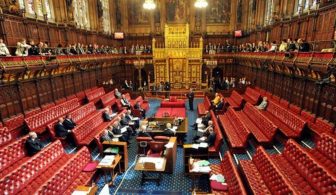
That is the warning from the National Residential Landlords Association (NRLA) as the House of Lords prepares to start detailed scrutiny of the Renters’ Rights Bill next week.
Whilst the core of the Bill is ending Section 21, ‘no explanation’ repossessions, without sensible changes reforms risk being unworkable in practice
Ahead of Committee Stage of the Bill in Lords, the NRLA is calling on the government to back a number of amendments proposed by Peers which will address these concerns.
These include:
+ Calls by the Liberal Democrats for the Government to review the impact of its plans on the justice system. Ending Section 21 will lead to the courts considering more possession cases where landlords have good reason. These currently take an average of more than seven months for the courts to process and enforce. This includes cases related to tenant anti-social behaviour and serious rent arrears. The Housing Minister has acknowledged that the court system is “on its knees”. This amendment has been tabled by the Liberal Democrats’ Housing Spokesperson, Baroness Thornhill.
+ A cross-party proposal to protect the annual cycle of all student housing. With fixed term tenancies ending, landlords will have no certainty that properties will be available to rent to new students at the start of each academic year. Whilst the Government has proposed a possession ground to address this, it excludes one-and two-bedroom properties which make up a third of student accommodation. This amendment would extend the possession ground to all student housing.
+ Proposals from a former Number 10 legal adviser to reverse the increase in the amount of rent arrears a tenant can build. The Bill increases by half the amount of rent arrears a tenant can build before a landlord can use the mandatory ground for possession for arrears. Allowing arrears to build further will make it harder for tenants to tackle problem debts. It will also make responsible landlords less likely to rent to those who struggle to prove they can sustain a tenancy.
Ministers also need to give the sector certainty about the future. So far, they have failed to explain when the system replacing Section 21 will come into force or to define what they mean when they commit to the courts being ‘ready’ for the impact of the changes, according to Ben Beadle, chief executive of the NRLA.
He said: “Ministers must back these constructive, sensible proposals to ensure the Renters’ Rights Bill works in practice.
“Without changes the justice system will not cope, students will struggle to plan where they will live and responsible landlords will avoid the risk of taking tenants with a poor, or no, credit history in the UK.”